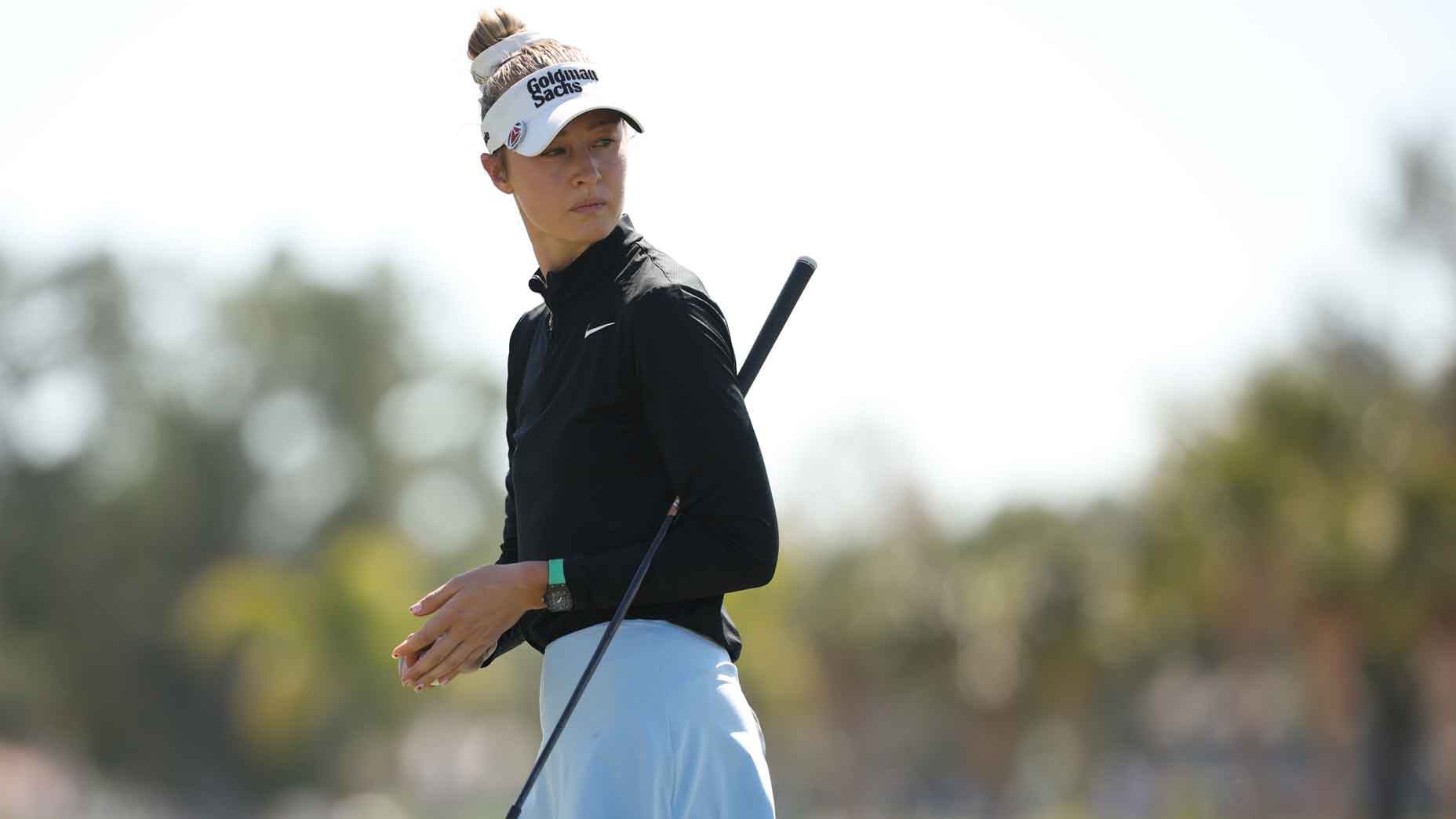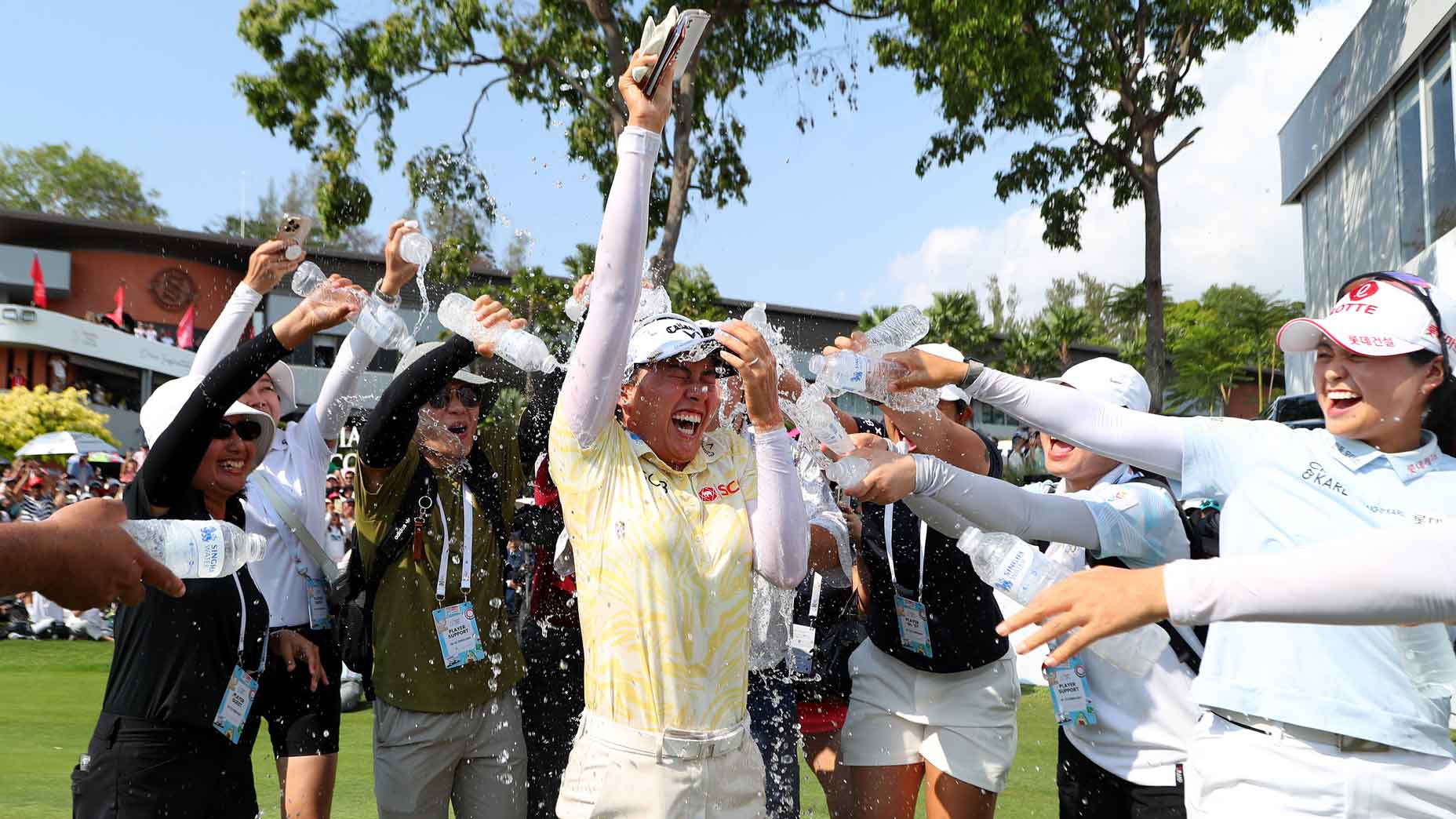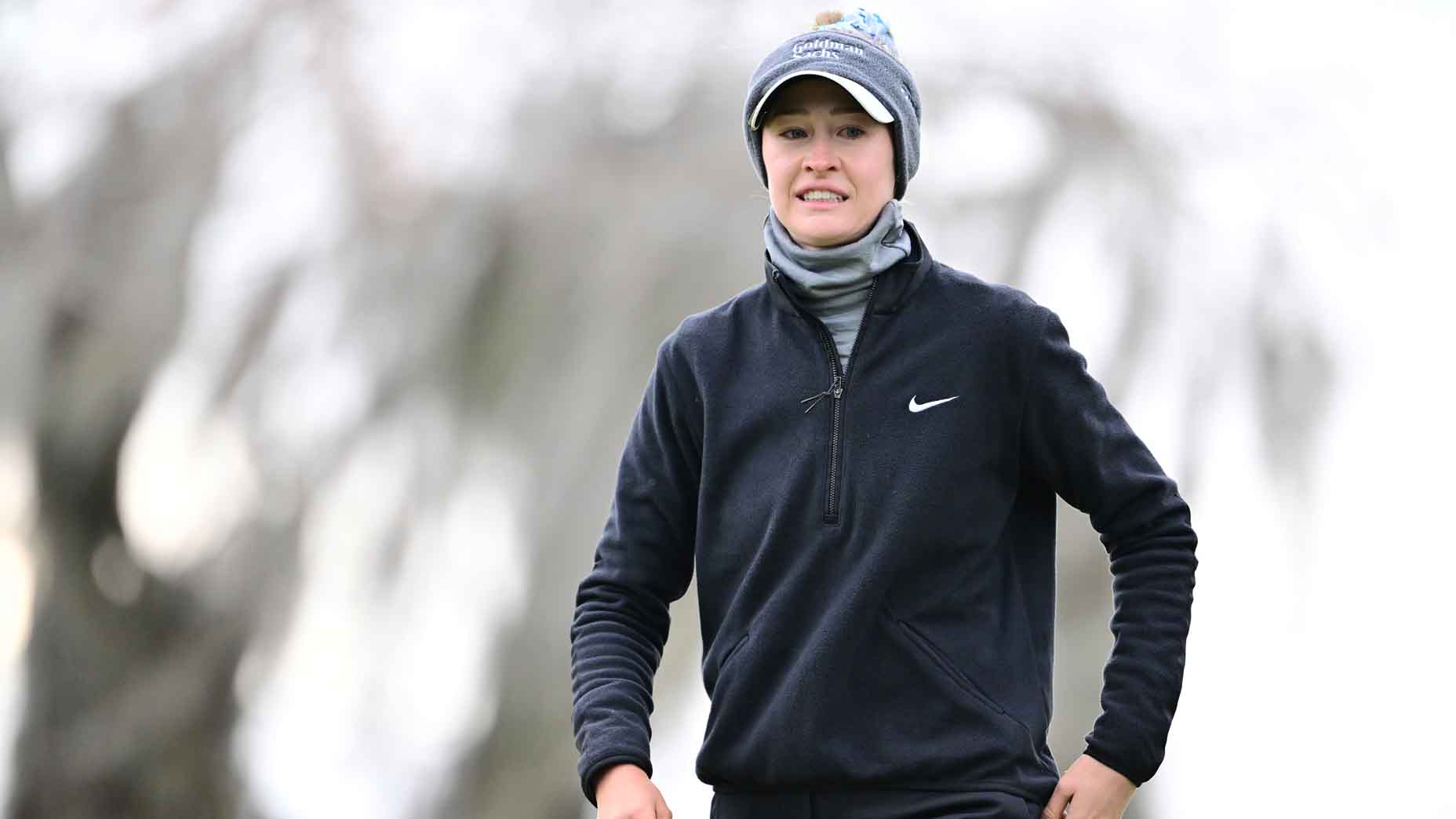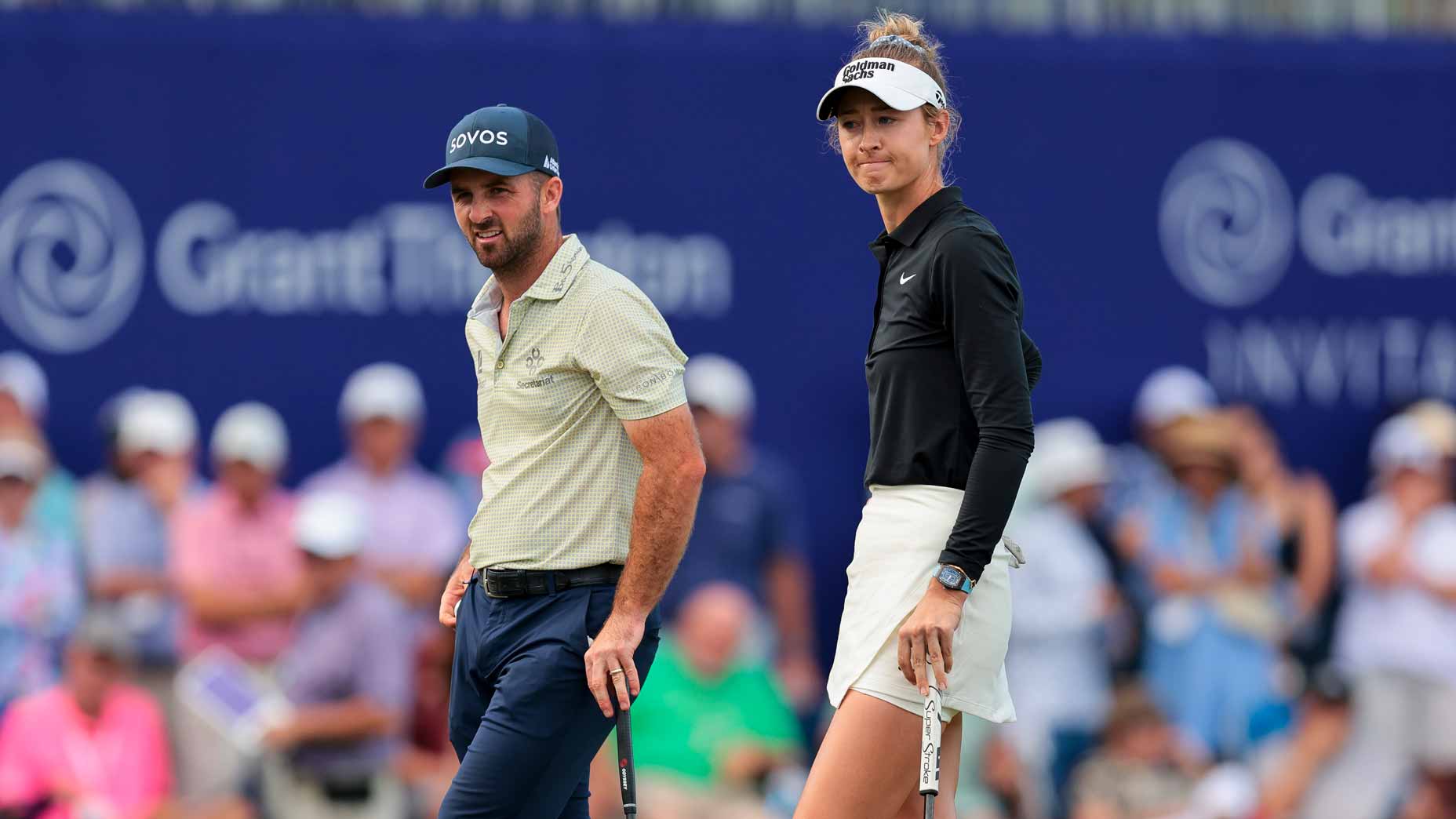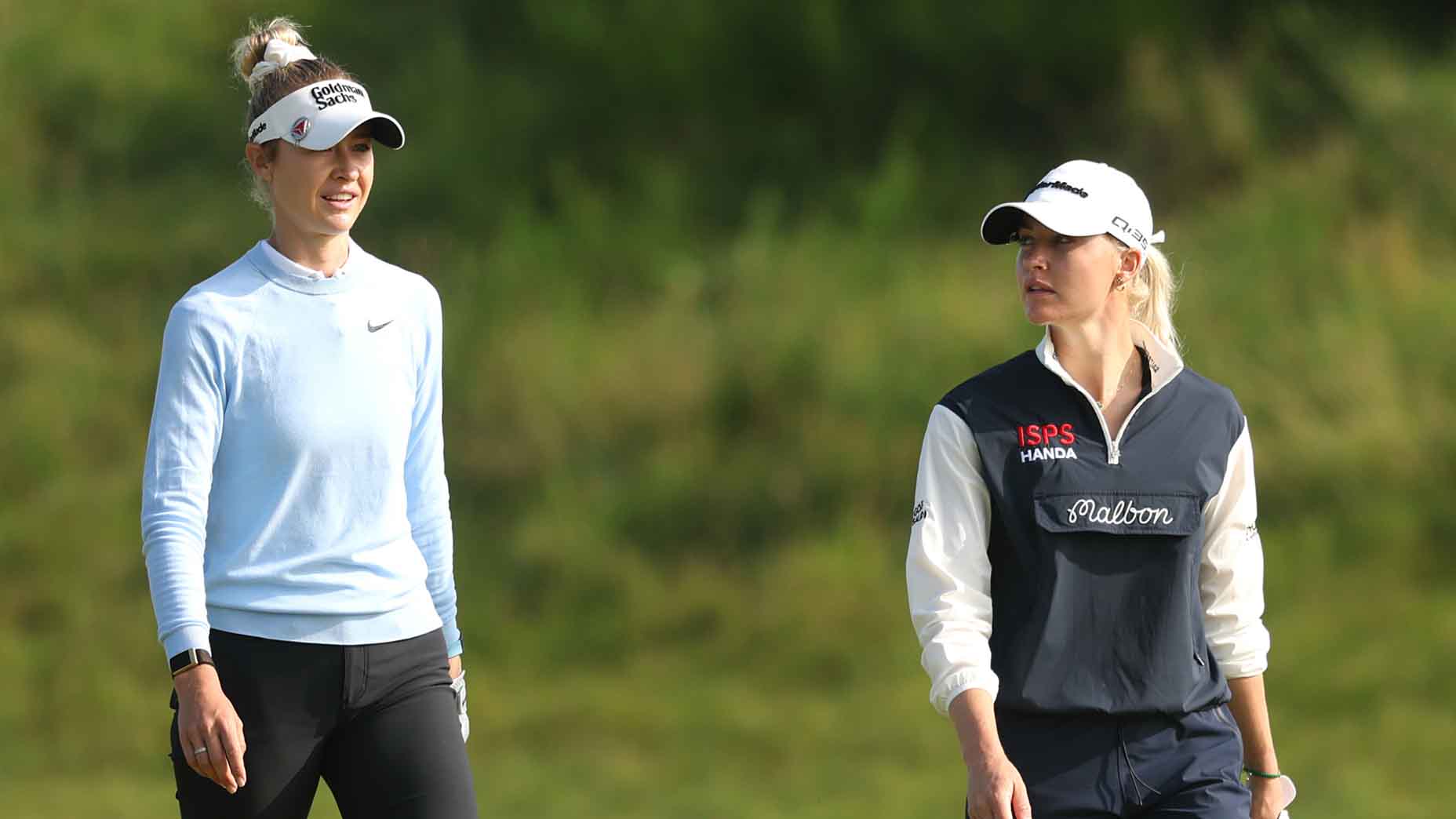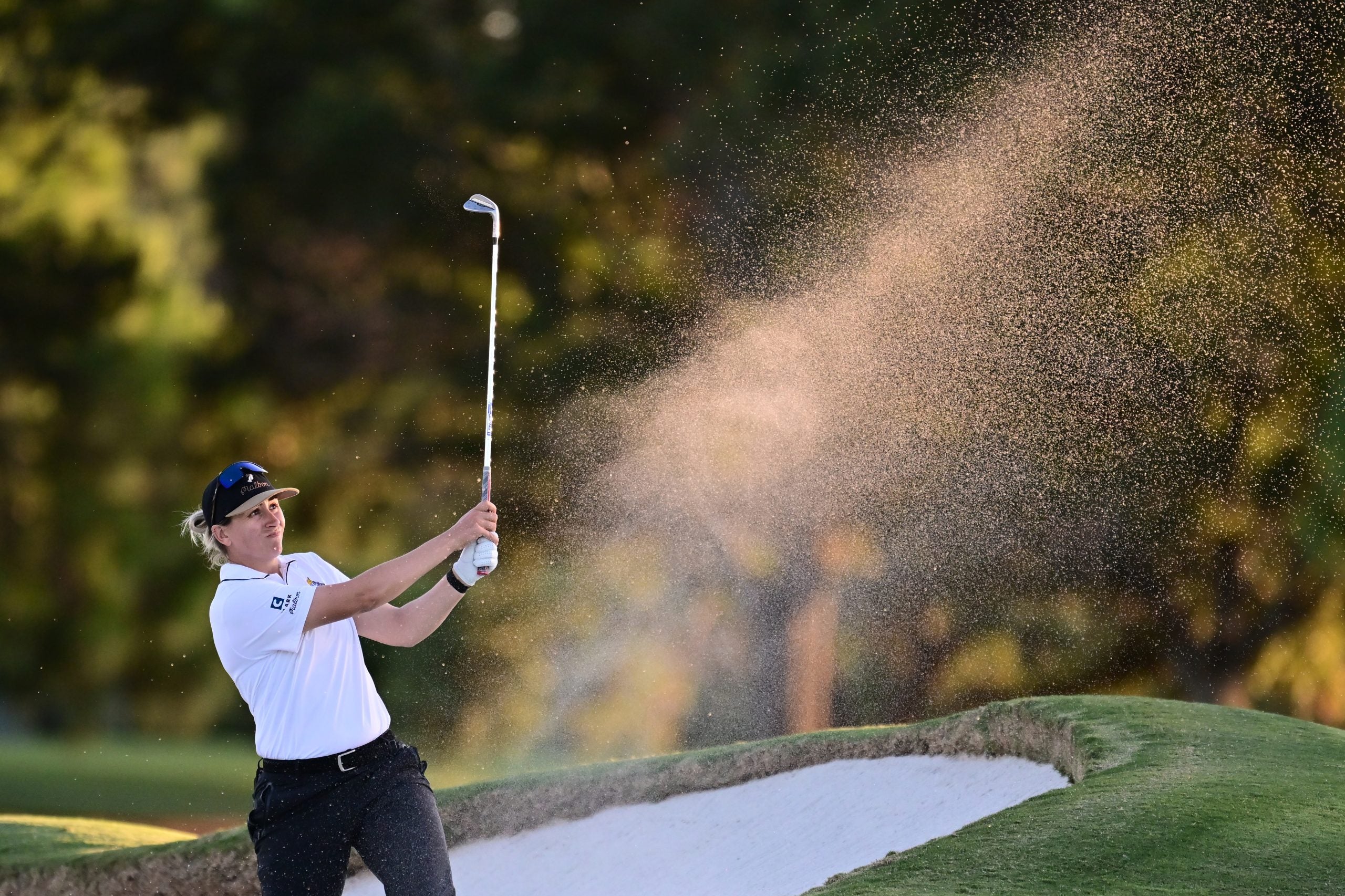Slow play is one of the hottest topics in golf. Not a day goes by that there isn’t chatter about the issue on social media. Heck, even broadcasters are getting in jabs when they feel a player is taking too long over a shot. In an era when attention spans are seemingly shorter than ever, speeding up play has never felt more important.
The leadership of the LPGA Tour knows this fact all too well. There have been several high-profile slow-play penalties dished out in recent years, while some of the biggest events have been overshadowed by the glacial pace.
At this week’s Founders Cup, the Tour announced it would be taking action to solve the problem. Early in the week, the Tour sent a memo to players outlining harsher penalties for pace-of-play breaches.
The current pace-of-play policy states that “a player in a group which is out of position may be penalized for unreasonable delay if: a. the player takes more than 60 seconds to play one shot, including putts, and/or b. the players exceeds the maximum allotted amount of time for the total strokes timed on a given hole by more than 10 seconds.”
With the new policy, players can now be fined for going 1 to 5 seconds over their allotted time and will receive a one-shot penalty for going over by 6 to 15 seconds. For breaches over 15 seconds, the penalty will be two strokes.
“I like it,” world No. 1 Nelly Korda told GOLF.com. “I think that the way to change it is to just toughen up the rules. I mean, if you get a one-stroke penalty, I bet you’re never gonna get one again. It’s all about toughening it up.”
Korda, who is entering her ninth season on the LPGA Tour, said she has seen the pace of play slow down considerably in recent years. Whereas rounds used to take four-and-a-half hours at max, now there are days when groups approach the six-hour mark.
“But that’s across the entire game of golf,” she said. “Like the PGA Tour has that problem as well.”
With the breakneck pace of the TGL — due in part to a strict 40-second shot clock — the idea of bringing a shot clock to traditional tours has become a popular one. In practice though, Korda said it would be difficult to implement.
“In the TGL, you know exactly when it’s your turn,” Korda said. “Sometimes the ball [of your playing partner] is still rolling on the green, but a rules official or volunteer can’t see it, so it’s still not your turn. And also, who’s going to do this? Like, if a volunteer does it, are you gonna really put that much power in their hands, you know? I think there’s a lot of variables involved for that to come into play for us.”
There may be no simple solution for the slow-play problem, but at least the LPGA Tour is making an effort. And to Korda, that is definitely a win — especially for the fans.
“I think it’s just going to be better for the fans,” Korda said. “Instead of losing half your fans on the back nine, I feel like look they’re going to stick with it and watch the ending of it.”
